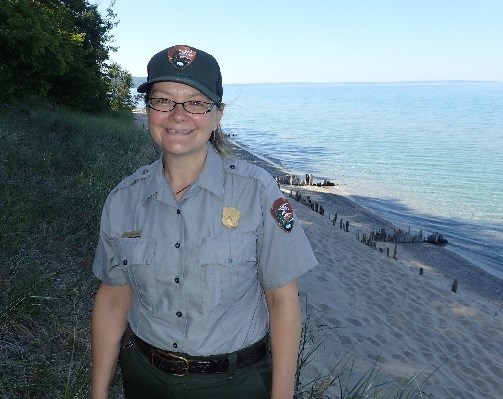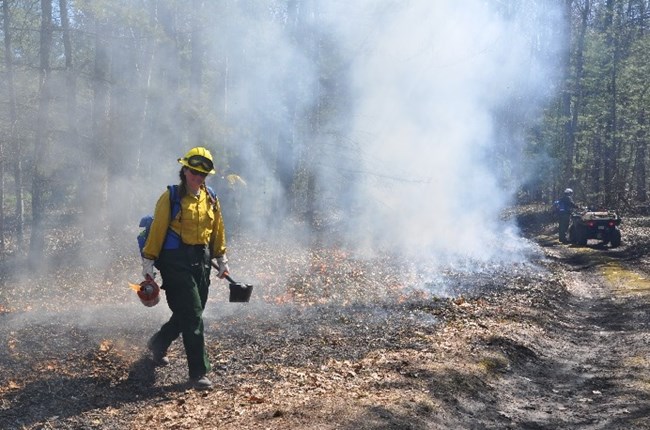
NPS Photo by Nicole Schafer
By Ariana Bulatovich
As a young camper, and then a camp counselor, Julie Christian loved being outside surrounded by nature - especially plants. She began her educational career with the intention of becoming a doctor, but she ended up loving most those classes that involved plants. Her passion for plants lead to a career change and Julie graduated from the University of Wisconsin-Eau Claire with a degree in biology, eventually becoming a plant biologist. She later went on to get a masters in Botany from the University of Wisconsin-Madison.
Early in Christian’s career, she worked as a Student Conservation Association intern at Channel Islands National Park, first in Visitor Services and then in Natural Resources. Those experiences helped her earn a full-time position in the neighboring Santa Monica Mountains National Recreation Area, where she conducted research about diverse plant communities. About a year after her internship, she temporarily returned to Channel Islands National Park to assist her previous supervisor. They were hiking to a permanent plot to sample plants, when Julie reached down and pointed out Hoffmann's rockcress. Her supervisor did not believe it as this plant had not been found on Santa Rosa Island for years prior to Julie’s discovery. This was a proud moment early in her career, and Julie remembers telling herself, “I can do this!” She had a good eye for distinct plants, it was fun using her skills in the field, and she was confident in her work. Julie was positive that she was in the right field.
Today, Christian is Chief of Natural Resources at Sleeping Bear Dunes National Lakeshore in Michigan. She has achieved and continues to achieve many of the things she had hoped for when she was younger. Julie says, “You have to find and make as many opportunities as you can afford to, but it’s important to like what you do every day.” She encourages future women scientists to take advantage of opportunities presented to them by mentors, supervisors, and professors.
Women like Julie Christian help lay the path for future women scientists. Julie points out that within her career she did have some push back because she was a woman in the field of science. On one occasion, when leading a project, a coworker told her that he as an older man should be leading the assignment instead of her. She continued to run the venture, with a greater awareness of how he felt having a woman at the helm. Christian reminds us to treat everyone respectfully and ethically. The future of science does not have to be gendered.
In her current role, Christian supports her staff, providing them with what they need to successfully do their jobs. She helps them identify funding, continue monitoring natural resources, and sustain the ecosystems at Sleeping Bear Dunes National Lakeshore. She is one of the many care-takers within the National Park Service (NPS). She and her teams protect the plants, animals, water, and air. They strive to keep the natural world thriving around them.

NPS Photo by Merrith Baughman
It is important to continue to expose young minds to science, technology, engineering, and mathematics (STEM). These fields may spark an interest. When young people are encouraged to pursue those interests, they can make a big difference in the world, both today as youth and tomorrow as adults. Julie Christian works with the NPS and partners to restore and maintain healthy ecosystems in Michigan. Her work to preserve natural areas does not go unnoticed. She has used every moment along her journey, using each to help build her career. Julie Christian is a role model for women wanting to go into science and is herself a marvelous example of a woman in science.
Last updated: August 17, 2020
